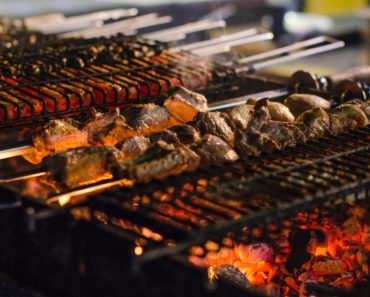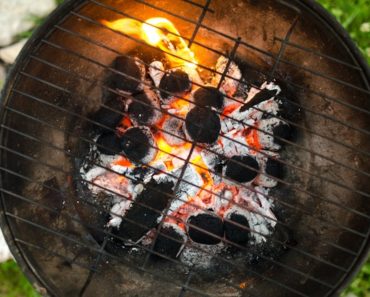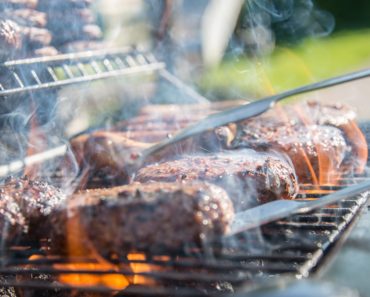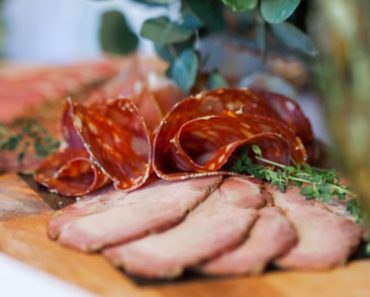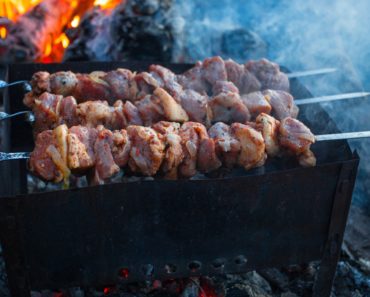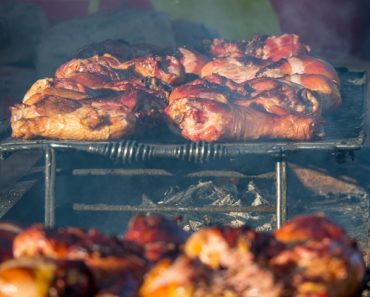Gas grill vs charcoal grill
Which type of grill do you prefer? Gas or charcoal? Maybe both. We’ll take a look at the pros and cons of each to help you decide which one is best for you. What are your thoughts on this topic?
Are you considering buying a grill? If so, there are many factors to consider, such as price, size, and type of grill. One of the most important decisions is whether to buy a gas grill or a charcoal grill. In this blog post, we will compare the two types of grills and help you decide which one is best for you.
What is a gas grill?
A gas grill is fueled by propane or natural gas. The temperature of the grill is controlled with knobs that control the amount of gas flowing to the burners. It offers fast cooking times and is relatively safe to use, but it may be more expensive than a charcoal grill.
Advantages of gas grills
– Instant heat – You can turn on a gas grill in just a few minutes. Even if you have to wait for the briquettes to light, it will take about 15-20 minutes before they are ready to cook on.
– Fuel options – Gas grills are more versatile than charcoal grills because they can be used with either propane or natural gas. Propane is easier and safer to store and use, while natural gas is cheaper over time and requires less effort to use.
– Temperature control – The temperature on most gas grills is very consistent, allowing you to adjust it quickly using the digital controls. Some higher end models offer even greater precision by including a thermostat.
– Ease of cleaning – With the exception of the grates, a gas grill is relatively easy to clean. All you have to do is wipe down the exterior and the inside of the grill box. The burners and drip pans can be removed for cleaning as well.
Features:
– Digital control panel
– Side burner (if applicable)
– Material: Stainless steel
– Temperature range: 200 degrees to 500 degrees
– Design: C-shaped burner for even heat distribution
– Price – Charcoal grills are significantly more affordable than gas grills.
– Temperature control – Because you have to light the coals, you will have complete control over how quickly or slowly they initially cook. This allows you to create hotter temperatures at first that then drop as the food finishes cooking. You can also turn down the heat on a charcoal grill by adding water soaked wood chips to some of the briquettes, which creates steam and lowers the temperature inside the grill.
– Flavor – Meats cooked on a charcoal grill will often taste smoky because of the flavor added by burning wood chips. The flavor is not always desirable, but if you like the taste of charcoal-grilled foods, it will suit your tastes well.
– Style:
Charcoal grills come in many different styles, such as barrel, kettle, and upright. This gives you some flexibility in terms of the look of your grill.
– Warranty:
Most gas grills come with a warranty of at least 2 years, while charcoal grills are usually only covered for 1 year.
– Ease of Use:
While both types of grills require that you light them, the charcoal grill will typically take more time, effort, and attention.
– Capacity:
You will generally be able to cook more food at one time with a gas grill because it has a consistent heat source. The grates are typically smaller on a charcoal grill, which means that you can only fit 2-3 burger patties at once.
– Durability:
Gas grills are typically more durable than charcoal grills, but this varies depending on the quality of the grill.
– Customer Service:
Gas grill manufacturers typically have better customer service than charcoal grill manufacturers.
What is a charcoal grill?
Charcoal grills are fueled by charcoal briquettes or natural lump wood charcoal. The heat source comes from an external firebox, which can be adjusted directly or indirectly depending on what you’re cooking. Lump wood charcoal burns hotter than briquettes, so it’s best for searing steaks and other foods that need high heat for only 8-10 minutes per side (lower will work better for longer cooking times).
Advantages of charcoal grills
– More flavor – Many people believe that charcoal grills produce food with more flavor than gas grills. The intense heat from the coals caramelizes the food, giving it a unique taste that you can’t get with a gas grill.
– Less expensive – Charcoal grills are typically cheaper than gas grills, even when you factor in the cost of buying a propane tank.
– More versatile – charcoal grills can be used for a variety of tasks, such as searing steaks, smoking ribs, or baking pizza. You can also use them for indirect cooking, which is great for slow roasted meats.
– Traditional – Charcoal grills have been around for decades and are considered more traditional than gas grills. If you’re looking for an authentic grilling experience, a charcoal grill is the way to go.
Features:
– Material: Both charcoal and gas grills come in different materials, including stainless steel and cast iron.
– Temperature: Do not allow your grill to get too hot. Whenever you add food or water soaked wood chips, the temperature will drop. If it gets too high, however, you can lower the heat by partially closing the lid on your grill.
– Smoke: If you want a smoky flavor, use wood chips that have been soaked in water. The best way to do this is to place the chips in a smoker box or wrap them in foil. This will allow the smoke to circulate around your food, adding a delicious flavor.
– Cleaning: It is important to clean your grill after each use to prevent the build-up of dirt and grease. Charcoal grills are typically easier to clean than gas grills, but they both require some effort.
– Lighting: Charcoal grills can be lit in two ways: with lighter fluid or with a chimney starter. Lighter fluid is faster but can be dangerous, while a chimney starter is slower but much safer.
– Temperature Control: One of the biggest advantages of gas grills is that they have more temperature control than charcoal grills. This means that you can cook at low temperatures and also that you can regulate the heat more accurately.
– Size: Charcoal grills are typically smaller in size than gas grills, making them better suited for small yards or patios.
– Portability: Gas grills are usually heavier and less portable than charcoal grills. If need to move your grill around often, a charcoal grill may be a better option.
– Fuel: Charcoal grills don’t require any fuel other than the actual coals, but gas burners need to be turned on and off with a propane tank or natural gas line. This requires more effort than simply adding wood chips to a charcoal fire and waiting for them to start smoking.
– Flavor: Charcoal grills produce food that has more flavor than gas grills, making them slightly better suited for certain cooking tasks.
– Capacity: Charcoal grills typically have a smaller cooking surface than gas grills, making them better suited for small groups or individual meals.
– Ease of use: Gas grills are much easier to use than charcoal grills and don’t require any special skills or knowledge. All you need is a propane tank or natural gas line.
– Cost: Charcoal grills are typically cheaper than gas grills, even when you factor in the cost of buying a propane tank.
– Durability: Charcoal grills are typically more durable than gas grills, but both can last for many years with proper care.
– Safety: Gas grills are more dangerous than charcoal grills, so if safety is a concern, a charcoal grill may be a better option.
– Environmental Impact: Gas grills produce more greenhouse gases than charcoal grills, so if you’re concerned about the environment, a charcoal grill may be a better option.
– Aesthetics: Charcoal grills typically look more traditional than gas grills and may be a better choice if you’re looking for an authentic grilling experience.
Which type of grill is best for you?
Now that you know the pros and cons of each grill type, it’s up to you to decide which one is best for you. If you’re looking for quick and easy cooking with minimal cleanup, a gas grill is likely the way to go. On the other hand, if you want more flavor and versatility at a lower cost, it’s hard to beat a charcoal grill. Both grills are great for grilling, but each one offers unique advantages.
The winner: Charcoal grill
The answer is simple: charcoal grills are better than gas grills! Well, it’s not that simple actually. While a charcoal grill does produce more flavor and is typically less expensive, there are some definite drawbacks as well. Wood or charcoal briquettes can be messy to deal with, especially if they’re allowed to fall on the ground where children or pets could consume them. When cooking indoors, dust from the coals may find its way into your home through open windows and ventilation fans. Residue from the smoke can also accumulate inside your house if you do not have proper ventilation installed. The ash created by burnt wood or charcoal has been known to damage certain types of concrete over time. If you have been considering a charcoal grill, be sure to research the different types of coals and woods available. Some are known to be more colorful than others due to odd additives that may cause health problems when inhaled or ingested.
FAQs:
How do you make a charcoal grill?
The simplest way to make a charcoal grill is by using metal wire mesh and wrapping it around a metal cylinder. If you plan on building one, be sure to use heat-resistant materials such as stainless steel or titanium. Using cheaper grades of metals may result in your grill catching fire or melting if left exposed to high heat for too long. You can also purchase premade grills online or at home improvement stores, but they are typically more expensive than making your own.
Can I use a charcoal grill to cook indoors?
No, you should not use a charcoal grill to cook indoors. The smoke and residue from the grill can damage your furniture, flooring, and other belongings.
What is the environmental impact of gas grills?
Gas grills produce more greenhouse gases than charcoal grills, so if you’re concerned about the environment, a charcoal grill may be a better option.
What about gas grills?
While they do have their own set of disadvantages , it’s hard not to love a gas grill. Gas grills aren’t too difficult to maintain because the only items requiring cleaning are the burners and drip pan underneath them. In addition, there is no ash produced by a gas grill, which means you won’t need any special tools for cleanup . They typically cook faster than charcoal grills as well, although different models will vary in this regard. Unfortunately, many people believe that food cooked on a gas grill doesn’t have the same flavor as food cooked on a charcoal grill. This may be due to the fact that most people use gas grills for quick and easy cooking, rather than for longer, low-and-slow smoking sessions.
Conclusion
So, which grill is right for you – gas or charcoal? It depends on your needs and preferences. If you want a quick and easy grilling experience, go with a gas grill. If you prefer the flavor of food cooked over charcoal, go with a charcoal grill. No matter which type of grill you choose, we hope you have many enjoyable grilled meals in the future!
There are pros and cons to both gas and charcoal grills. It ultimately depends on your individual needs and preferences as to which one is better for you. Gas grills are quick and easy to use, while charcoal grills offer richer flavor. Whichever type of grill you choose, we hope you have many enjoyable grilled meals in your
Both gas and charcoal grills have their pros and cons. If you are looking for a quick, easy grill that doesn’t require a lot of setup, then a gas grill is probably the best option for you. If you are looking for a more traditional grilling experience with lots of flavor, then a charcoal grill is probably better suited for you. No matter which type of grill you choose, we hope you have fun cooking on it!
Now that we’ve looked at the pros and cons of gas and charcoal grills, it’s up to you to decide which one is best.

